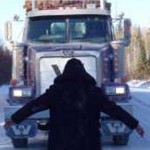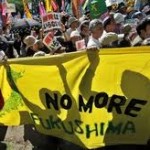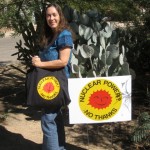Nearly every airline these days is addicted to fees.
Those who say we should run government like a business must not be frequent flyers.
Those who say we should run government like a business must not be frequent flyers.
from Stepwise Press
FOXBORO, MASSACHUSETTS, December 12, 2012 — Overall, Americans [and Canadians] are just plain exhausted — and it isn’t surprising. Society tells us (not very subtly, either) that we need to perform to a certain standard, look a certain way, weigh a certain number, make a certain amount of money, and much more. Too bad that “perfect” lifestyle is impossible to achieve. Nobody can do it all, all of the time.

by David Swanson
Whereas the Universal Declaration of Human Rights is not self-enforcing,
Whereas statement of the inherent dignity and of the equal and supposedly inalienable rights of all members of the human family achieves little without a struggle against greed, injustice, tyranny, and war,
Whereas disregard and contempt for human rights could not have resulted in the barbarous acts that have outraged the conscience of humankind without the cowardice, laziness, apathy, and blind obedience of well-meaning but unengaged spectators,

by Anna Willow
Ten years ago, on December 3, 2002, members of Grassy Narrows First Nation began a blockade to prevent the passage of logging equipment and trucks through their traditional territory.
by Stephen Leahy
The United Nations climate talks in Doha went a full extra 24 hours and ended without increased cuts in fossil fuel emissions and without financial commitments between 2013 and 2015.

by Penney Kome
Along with freak storms, nuclear reactor accidents have moved from being a 100 year event to being regular occurrences. “The Nuclear Regulatory Commission’s probabilistic risk analysis claims a meltdown is a once in a 200 year event,” said nuclear engineer Arne Gundersen. But the facts contradict the predictions. “There have been five meltdowns in 35 years: Three Mile Island, Chernobyl, and three meltdowns at Fukushima.”
Fukushima! As the people of Japan struggle with the consequences of the 2010 earthquakes and tsunami, the ongoing catastrophe at the Daichi nuclear power plants has turned Japanese public opinion solidly against starting up the remaining plants.

by Stephen Leahy
— While the Philippines copes with the aftermath of powerful super-typhoon Bopha, which killed more than 300 people this week, tempers flared at the UN climate summit here.
Developing countries are angry the US and European Union and other rich industrialised countries refuse to increase their carbon emission reduction targets or agree to additional financing here at COP18.

by Penney Kome
From December 3 – 5, the Canadian Nuclear Safety Commission is holding hearings in Courtice, Ontario, with an unprecedented three different items on the agenda. The meetings had to be postponed from September because of the number of intervenors. Ninety groups or individuals will present in person; at least as many have submitted written presentations.
NorthWatch researcher Brennain Lloyd talks about issues now before the CNSC.

In this exclusive SGN video interview, Brennain Lloyd of NorthWatch describes the issues and dynamics involved with these hearings. Intervenors have ten minutes to address:
For many environmental groups, the radioactive waste issue is urgent. Currently, the wastes are “imperfectly stored” at the reactor station, said Lloyd. She cited a decades-long hunt for the perfect geological formation that would isolate fuel waste in perpetuity. Now the regulators have abandoned that hunt, and “any rock will do.” One proposal is to bury low and medium level wastes deep below the surface of the Bruce generating station, on the shore of Lake Huron.
As well, the CNSC has invited Ontario small cities and townships to participate in a “National Infrastructure Project” — otherwise known as a nuclear dump — advertised as being worth $16 – 24 billion. Twenty-one communities have agreed to be studied as potentially the site for high-level nuclear waste — mostly without the local people knowing anything about it.
Lloyd said that the CNSC is trying to reassure municipal councils that the radioactive material decomposes over time, so that eventually there will be no radioactivity left. Two key factors are omitted from presentations, however. The first is that decomposition can take centuries, if not millennia. The second is that decomposition means the radioactivity is leaving the material — and potentially going into the local air and water.

by Stephen Leahy
DOHA, Qatar, November 30 2012 (IPS) — A new scientific report shows that global warming can be kept well under two degrees C, but only if most of the known deposits of coal, oil and gas remain in the ground.
The problem is no country is doing anywhere near enough to keep fossil fuels in the ground, according to the Climate Action Tracker released Friday on the sidelines of the UN climate change negotiations here in Doha, Qatar.

by Stephen Leahy
DOHA, Qatar, December 3, 2012, (IPS) — Beatrice Yeung, a youth delegate at the United Nations climate talks, travelled all the way from Hong Kong to Doha, Qatar to bring her generation’s message that “we will live in the world you are creating for us.”
But Yeung is not allowed inside. We met in a hallway outside the “security zone” at the Qatari National Conference Center (QNCC), where this reporter was ordered by UN police not to take any photographs.
For no obvious reason, security at the meeting known as COP 18 is very strict.